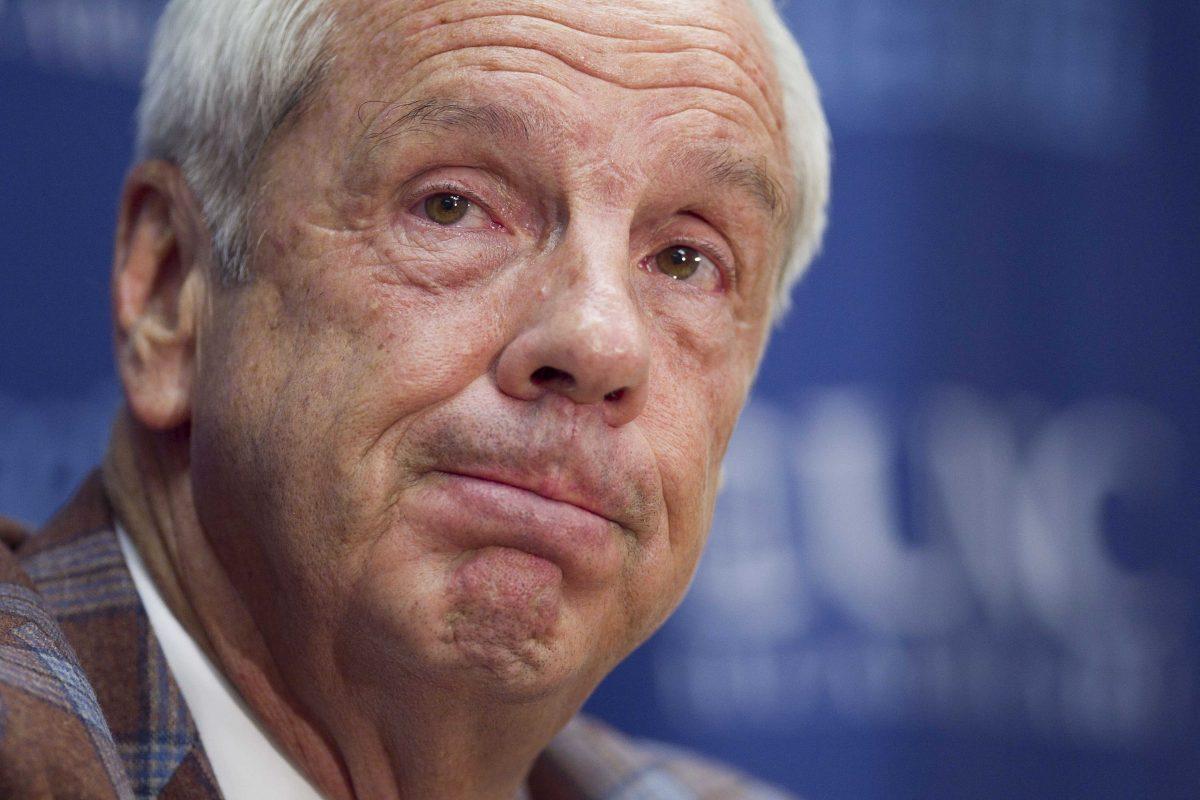There’s an old NCAA commercial that ends with the line, “There are over 400,000 NCAA student-athletes, and just about all of us will be going pro in something other than sports.”
If this statement is true, the last thing an athlete should be doing is going to fake classes.
Last week, a scathing 131-page report was released accusing the University of North Carolina of academic fraud, claiming 3,100 students were enrolled at the school in fake classes over 18 years. Reports say about half of those students were athletes.
The immediate victims of the scandal are fans of the school, who will forever see the championships and success during the 18-year run in a bad light. They will see the athletes they went to school with and view them as cheaters — kids who avoided the weekly grind only because they could jump higher.
The fans’ hate will eventually blow over. What doesn’t change is the path down which UNC has sent some of its athletes, leaving them without the proper education they were once promised.
UNC academic counselors steered athletes into the fake courses. The athletes shouldn’t be withheld from all blame in the scandal, but we should recognize the influence they were under.
One former UNC football player, Mike McAdoo, said earlier this year that his adviser told him to major in African-American Studies — the subject where the fake classes took place. McAdoo was then put in several paper classes, even though he was interested in majoring in something else.
But McAdoo did not come to UNC to choose his major — at least not in the eyes of those running the school. He came to play football and get the Tar Heels to a couple of bowl games. The classes he took in school were meaningless as long as he passed.
Once players like McAdoo realize this, they can finally see how UNC viewed them when they first stepped on campus — as objects.
Without any schooling, those kids become tools colleges use for free to generate buzz about their athletic teams. The buzz turns into copious amounts of revenue, none of which goes to the athletes.
For most student-athletes, a college scholarship is their opportunity at a promising career, and getting a degree at a prestigious university like UNC could change their life. But these are still 18- to 22-year-old students, and they can be swayed to make poor decisions if authorities look the other way.
A larger fear is that the scandal does not stop at Chapel Hill, and similar “fake class” programs are going on around the country. The UNC program lasted 18 years, and who’s to say someone who had a hand in it didn’t go to another school and attempt to start something similar?
Somewhere, there’s a former UNC athlete who is unemployed and struggling to make ends meet. Maybe with the proper guidance from the school, he could have a career in any field he wanted, rather than being taken advantage of by people who just wanted fatter pockets.
That player lost a chance at an education, and no final score makes up for that.
Tommy Romanach is a 22-year-old mass communication senior from Dallas, Texas. You can reach him on Twitter @troman_98.
Opinion: UNC academic scandal negatively affects athletes after college
October 27, 2014
North Carolina basketball coach Roy Williams reacts to questions regarding the release of a report on academic fraud at the university, following the team’s NCAA college basketball exhibition game against Fayetteville State on Friday, Oct. 24, 2014, Chapel Hill, N.C. (AP Photo/The News & Observer, Robert Willett)
More to Discover





